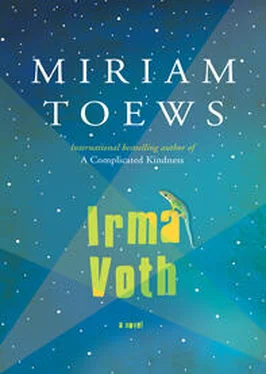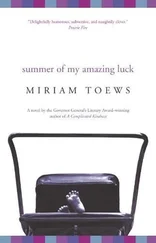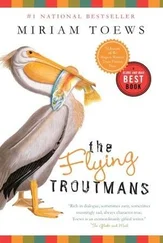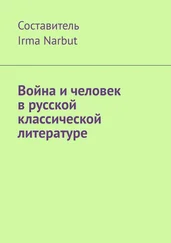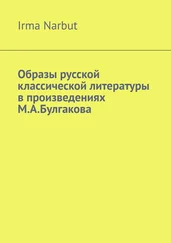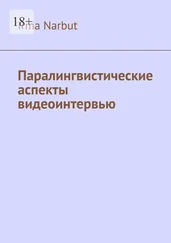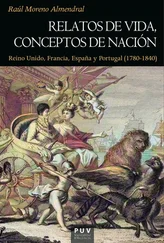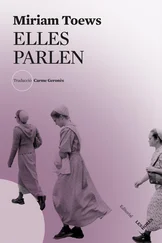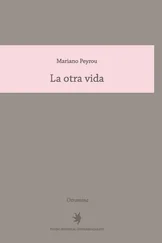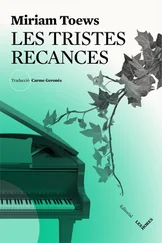Oveja and I are blood brothers, Diego said. We were soldiers and now we are artists. He explained that before he became a filmmaker he was involved in armed conflict, though on the legal end of things.
Oveja will eventually play the part of the family dog in my movie, said Diego.
I know, I said.
Ah, you do? he asked.
He suggested that we move closer to the yard light so that we could see each other’s faces. He smiled and I looked at him closely. He wore a thin thread around his neck and attached to the thread was a small piece of paper the size of a postage stamp. It had writing on it but I couldn’t read it. He had a red dot in the white part of his left eye, like a tiny pilot light.
Which languages do you speak, Irma? he asked me.
German, Spanish and English, I said.
Do you want a job? he asked me.
I don’t know, I said. I think I have one.
What is it? he said.
The farm, I said. I glanced over at the barn behind my house. And … wife.
How old are you, Irma?
I’m nineteen years old, I said.
And you’re married? he said.
Yes, I said, for one year already.
Have you been here all your life?
I was born in Canada, I said.
Where is your husband? he said.
He’s in the city.
Which city?
Chihuahua. Or Juárez.
For how long?
I don’t know.
Would you like to make some extra money as a translator? he said.
Diego said he’d explain to me in Spanish or English what he wanted his German actress to say and do and I’d tell her, in German, what it was. He told me that it didn’t really matter what the actors were saying because nobody watching the film would understand the language anyway. It wasn’t really German that they’d be speaking, it was Low German, which is the unwritten language of the Mennonite people and hardly used in the world anymore. And besides, he said, there will be subtitles.
My actors could be saying I have worms, you have worms, we all have worms, he said, and nobody would know the difference. Do you understand, Irma?
I do, I said.
But I want them to know what they’re saying, he said. So that they’ll feel the words and produce the appropriate emotional response.
He told me that Miguel, a sixteen-year-old production assistant, will pick Marijke the German actress up at the airport in Chihuahua city tomorrow and bring her here to Campo 6.5 and we’ll begin to shoot the movie the next day after she’s had some time to rest.
I’m looking for internal energy and presence, Diego told me. I travelled around the world searching for the woman who would play this role. I want her to be beautiful, but not beautiful.
I understand, I told him.
I want her face to feel at home on an ancient coin, he said. I want her eyes to harm me. I want her, I mean her , to be too big for her body, a living secret, so that she is squeezed out through here, he said. He touched my forehead.
And here too, he said. He put his hand on my throat. And here, especially. He covered my eyes for a second.
And you found her? I said.
Yes, he said. In Germany. In a very small village. There was a woman in France but she was too beautiful.
Are you from Mexico City? I asked him.
Yes, but I’ve been living in Europe for the last few years. How long have you been living here? he asked me.
We came six years ago, I said.
It’s very beautiful, he said.
It is? I said.
Yes, it’s astonishing, he said.
What’s Mexico City like? I said.
Ah, it’s heaven and hell, he said. Are you nervous? You’re shaking.
No, I said. I’m cold.
Why don’t you come inside and meet the crew? he said. It’s warm in there. I’ll make you an espresso.
No, I have to get back to … there, I said. I pointed behind me.
The cornfield? he said.
I pointed again, towards the shadowy assortment of metal and concrete that housed my belongings. Diego smiled but I couldn’t tell if he was sad or happy because he hadn’t stopped smiling since rescuing me from his blood brother.
Okay, he said. But, quickly, let me just explain a few things to you about the job. We have a small crew, he said, and we are investing in time, not equipment and salaries. We all have specific responsibilities but everybody will be required to help out with everything. It’s very necessary. Do you agree with that, Irma?
Sure, I said.
I hate stories and photographs, he said. They scare me. They freak me out. They’re dead. I want emotion, the feeling, the emotional resonance of the person, the character coming out of a shot, a painting. I hate narrative. I hate actors. It’s very important that your translation of my words is precise. Will it be?
Yes, I said.
And Irma, do you feel that we can rebel?
I don’t know, I said. I had no idea what he was referring to, or on which word of the question to put the emphasis.
Do you feel that we can rebel against our oppressors without losing our love, our tolerance and our ability to forgive?
I don’t know, I said. I looked around towards nature for a clue. A bird, a gust of wind, a star? But there was nothing, as though nature had noticed me trying to cheat and quickly covered up her answers. Diego put his hand on my shoulder and continued to smile.
Perfect, he said. You will be perfect.

The next morning Aggie and I met on the road between our houses and had one of our speed conversations. It’s a silly thing we do together to make it seem like our imposed separation is not the source of continuous heartbreak and an abomination of what is just and loving but one long ridiculous joke like the Berlin Wall.
You’re working for the filmmakers as a translator? That’s crazy! Dad’ll kill you! He already hates them!
I know, I said, so don’t tell him. Diego will pay me and then I can use the money to go to Chihuahua or Juárez to find Jorge. Here, I have something for you.
What is it?
A switchblade. I brought it from Canada. Open it.
It’s a comb!
It’s a joke!
Drag.
Okay, then give it back to me!
No, I’ll keep it.
I gotta go or you’ll be in deep shit.
Irma, she said. But I had started to walk away. I heard her say some more things but by then I had yanked my skirt up and was running down the road away from her and begging the wind to obliterate her voice. She wanted to live with me. She missed me. She wanted me to come back home. She wanted to run away. She was yelling all this stuff and I wanted so badly for her to shut up. She was quiet for a second and I stopped running and turned around once to look at her. She was a thimble-sized girl on the road, a speck of a living thing. Her white-blond hair flew around her head like a small fire and it was all I could see because everything else about her blended in with the countryside.
He offered you a what? she yelled.
An espresso! I yelled back. It was like yelling at a shorting wire or a burning bush.
What is it? she said.
Coffee! I yelled.
Irma, can I come and live—
I turned around again and began to run.
I SPENT THE REST OF THE DAY cleaning the house and milking the cows and embroidering dangerous words onto the inside of my dresses, words like lust and agony and Jorge , and baking bread and yanking vegetables out of the ground, and making apple sauce with the apples that my aunt from Campo 4 had left for me at the end of the driveway with a note that said even sinners need to eat and a religious magazine with a headline that read the only way to heaven is to admit that you are a complete failure, and washing the windows and burning stuff and poisoning snake nests and killing rats. I didn’t see Aggie for the rest of the day. I knew she was mad at me. I could picture her stomping around the house and being sassy to everyone and brandishing her useless weapon.
Читать дальше
